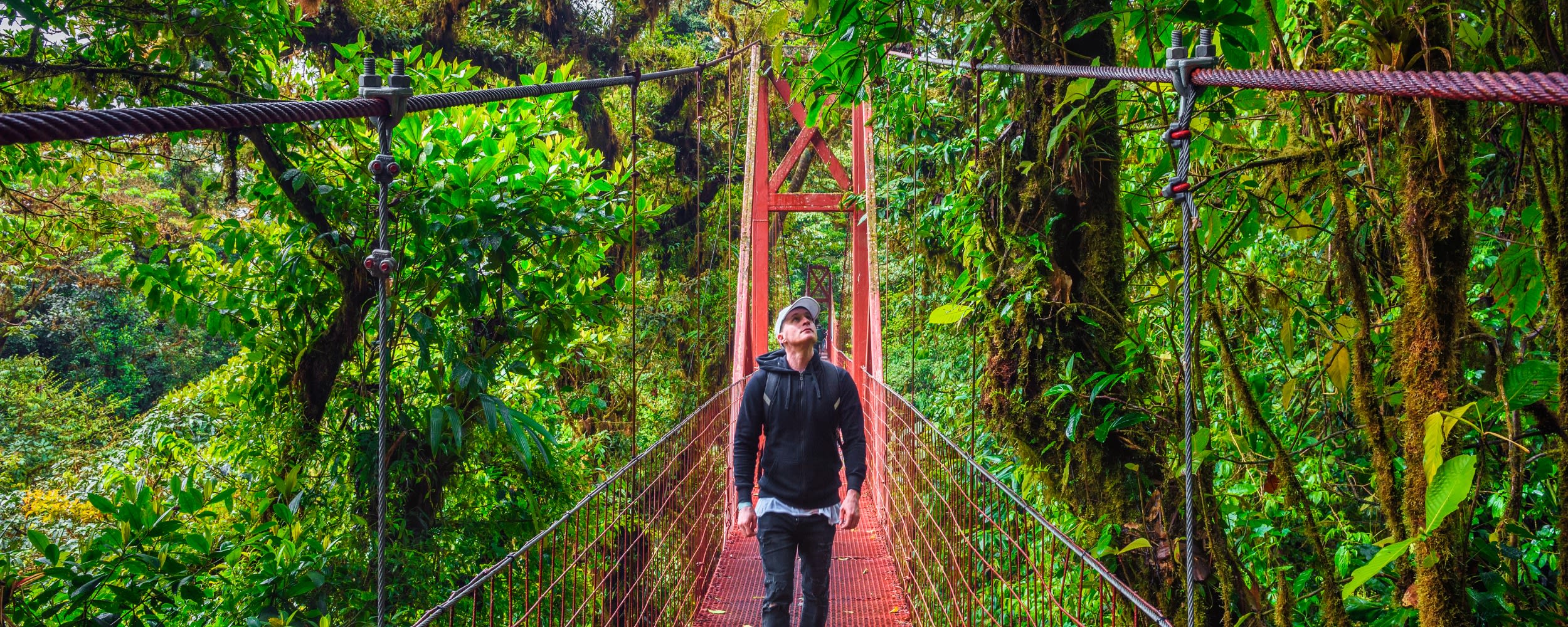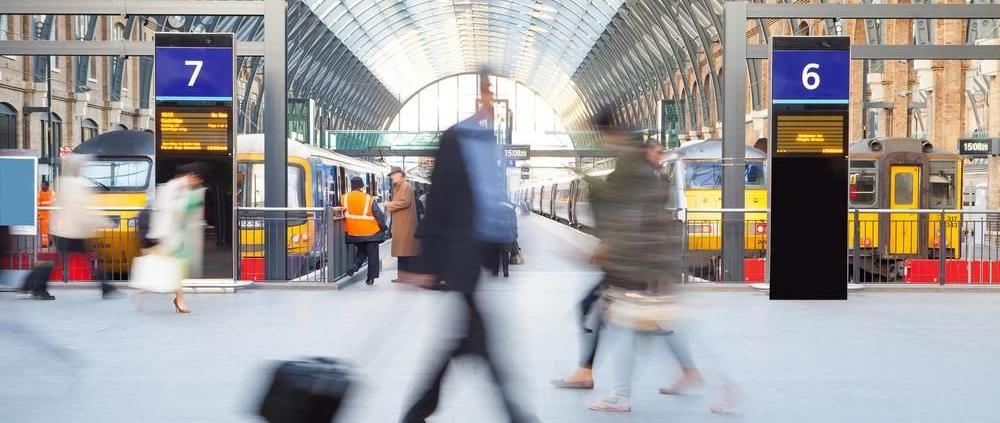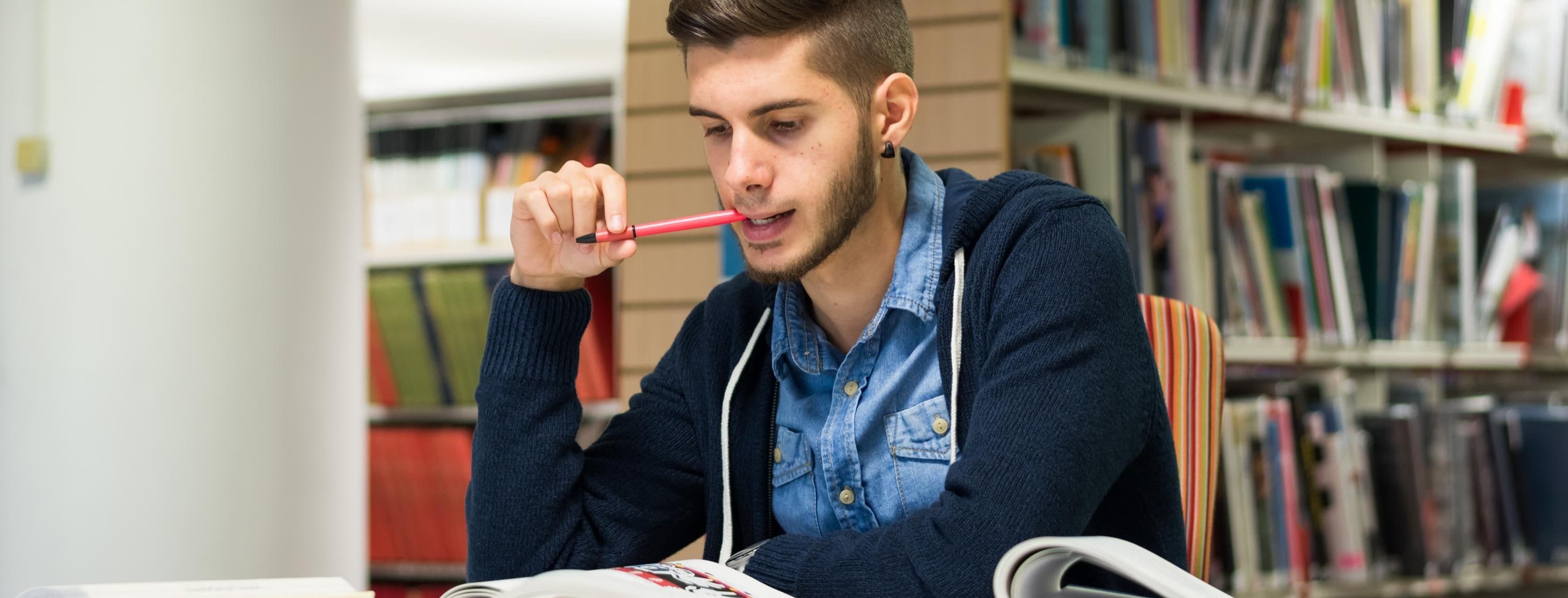What Tourism Students Need to Know About the Future of the Travel Industry
International travel is back. However, like almost every industry in the post-COVID world, things won't be returning to how we remember. That's not necessarily a bad thing. The new travel normal includes a renewed appreciation for adventure and a more socially responsible kind of traveling. Big things are also happening in niche and emerging tourism markets, including pet travel. So with that in mind, and a world with a pent-up desire to travel, here's a round-up of what tourism students need to know about the future of the travel industry.
- International News

The savings rate among high-earning professionals in developed nations rose by between 10% to 20% during lockdowns. Now that travel restrictions are finally being lifted, many of these people are getting ready to spend their extra cash on a much-needed holiday. In fact, travel experts predict a large rebound boom in leisure travel, with corporate travel expected to return at a slower pace. A recent survey conducted by the International Air Transport Association (IATA) found 57% of respondents hoped to travel within two months. Of those, 75% will be visiting friends, family or simply enjoying a relaxing break. This suspended appetite for travel is excellent news for people working in regions where tourism accounts for a large portion of local and national economies. For example, the Greek Minister of Tourism, Vasilis Kikilia, believes the return of large-scale international travel will add around $15 billion to Greece's GDP within the next 12 months.
The staycation is here to stay
Despite rising vaccination rates and falling cases of COVID-19, not everyone feels comfortable traveling to another country. This has led to a significant increase in what tourism experts call the staycation -- a short break or leisure activity enjoyed at home or within a few hours' drive. In the UK, many of those who would have previously traveled abroad are now opting to spend a few days at idyllic towns and villages near the Lake District, the Cotswolds, Devon, or Cornwall. More adventurous types are heading to Snowdonia National park, where they can explore an extensive network of trails or challenge themselves to climb the region's highest peaks.
It looks like the staycation is here to stay; or at least for the next 12 months or so. After Ryanair boss Michael O'Leary warned consumers about rising travel costs, social media was flooded with posts and messages praising the staycation. "I don't care," posted one tweeter. "I've rediscovered Scotland. It's as beautiful as anywhere else in the world." Another wrote, "that's another few years of staycationing, then. Fine by me!"
More visitors puts additional strain on the environment
The UK staycation phenomena brought an extra 200,000 visitors to Mount Snowdon last year. During one particularly busy day, there was a 45-minute queue to reach the summit. Unfortunately, not all the new climbers understood the responsibility that comes with visiting sites of natural beauty. John Harold is the director of the Snowdonia Society, which helps maintain the mountain. He says, "we all know that access to beautiful places and unique places like Snowdon has been important to people, more so than ever recently, but the pressures that have come with this increased demand are really quite significant. They include litter, footpath erosion, wild camping, traffic, parking. In a sense, none of these are new, but they've all acquired a sharp edge in the last 18 months."
Consumers demand more sustainable travel options
Thankfully, plenty of people understand travel in the post-COVID world needs to be sustainable. A report by Booking.com shows 83% of holidaymakers believe travel should be more eco-friendly. Moreover, 49% of those surveyed think there aren't enough sustainable travel options. They would like to see more companies like Kind Traveler. As part of its "Give + Get'' program, the hotel booking platform donates $10 from each night booked to a local charity aligned with the United Nations’ 17 sustainable development goals (SDGs). Then there's TourRadar. It allows travelers to calculate and then reduce the carbon footprint of their next holiday or business trip. Platform users can also donate to nature-based carbon mitigation projects to offset any environmental impact.
Holidays that can really mean something
The COVID-19 outbreak brought many things into perspective. Lockdowns gave us an extra appreciation for the things we had to sacrifice. Moreover, those who lost loved ones found themselves contemplating the most profound issues of all, including the nature of mortality, as well as what constitutes a good and rewarding life.
Much Better Adventures co-founder Sam Bruce believes this broader outlook has contributed to the greater demand for meaningful travel experiences. "People are gravitating towards more adventurous experiences than they might have done 18 months ago, possibly because our relationship with our own mortality has now changed quite a bit," says Sam. "Life's so short. We appreciate that now more than ever, and we're seeing that reflected in what people are booking."
Intrepid Travel's Managing Director Zina Bencheikh has seen something very similar. Her firm is struggling to keep up with inquiries for its Everest, Antarctica, and Inca Trail expeditions. "Our guests are seeking the great outdoors, majestic scenery, and wildlife,” says Zina. "They clearly have all appreciated nature and wildlife much more since being locked down."
Embracing digitalization
A vacation is a chance to escape the hectic nature of modern life. We can ignore emails for a few days, and feel comfortable leaving the work mobile at home. However, in order to provide the ideal getaway experience customers are looking for, all hotels and holiday destinations will have to embrace digital payment technologies. The switch from cash to contactless payments during the pandemic means hotels should increasingly accept card or smartphone payments. Similarly, even the smallest bed and breakfast providers are feeling the need some kind of digital presence to attract modern-day consumers who now search for everything online.
The world's first smart hotels
For the big players, increasing digitization within the tourist industry is a chance to innovate and gain a competitive edge. Hotel chain Marriott International is working with Samsung and Legrand to create a smart room equipped with advanced Internet of Things (IoTT) devices. These intelligent systems and virtual assistants will help guests set an alarm clock, book a spa session, call taxis, or customize the cleaning service or shower settings. There's even a plan to turn the room's mirror into an interactive screen for attending virtual meetings or relaxing yoga classes.
The Starwood hotel chain has already introduced similar measures. Its automated booking system means guests can check in with just their smartphone. Once connected, the smartphone transforms into a digital key for opening your room and accessing other services, like booking a table at the restaurant. This removes several potential points of contact for customers, and allows hotels to collect and analyze guest data. The data can then be used to provide a more personalized and satisfying customer experience.
Pets on planes
The pandemic saw a significant surge in first-time dog owners. Pets provided some extra company when people needed it the most. Plus, they helped many of their humans embrace an active lifestyle. But having a furry family member can be a real issue when planning for holidays. As such, savvy entrepreneurs are offering new travel services and products to keep people and pets together during the holidays.
This includes bespoke pet hotels like the Best Friends Roadhouse and Mercantile hotel in Utah, USA. It has a fenced dog park, canine spa, slide-out pet beds, and a never-ending supply of tasty treats. The hotel also runs special events. Guests recently had the chance to take their pup to see a pet physio. Many of the more established names in the tourism industry are also adapting. Several major US airlines will now accept pets onto their planes, and you'll soon start to see additional dog care stations at US airports to account for these four-legged travelers.
COVID-19 is reshaping the industry, creating new and exciting career opportunities for tourism graduates who can recognize the next big travel trends!
Find your perfect program
Use our search to find and compare programs from universities all over the world!
Tourism and Hospitality
Ashley Murphy
Author
After graduating with a degree in English literature and creative writing, Ashley worked as a bartender, insurance broker, and teacher. He became a full-time freelance writer in 2016. He lives and writes in Manchester, England.
Find a program in these categories
Read related articles

Are International Students Immigrants? The Debate Explained

Why You Should Befriend International Students
